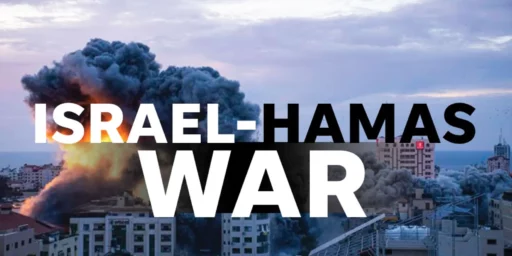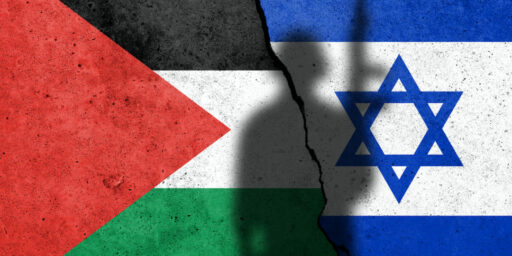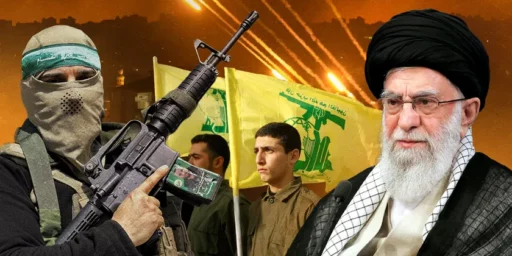LEARNING FROM ISRAEL
TIME’s story, Learning the Art of Occupation from Israel, is a bit frightening.
The idea U.S. forces in Iraq may be taking lessons in occupation and counterinsurgency from the Israeli Defense Force may have only just begun to make the news in America, but it has been obvious to Iraqis for some time. For residents of the Sunni Triangle, who have spent years watching TV images of the residents of the West Bank and Gaza living under siege, surrounded by checkpoints and suffering periodic air strikes and military sweeps, the Palestinian experience offers a ready template for understanding the turn taken by their own lives over the past six months. Whole villages have been surrounded by razor wire, their residents forced to pass through checkpoints; U.S. aircraft and artillery have blasted buildings suspected of being used by insurgents; there have even been instances of family members of suspected insurgents being taken into custody when their wanted relatives can’t be found. As one Iraqi waiting on line at a checkpoint last week told the New York Times, “I see no difference between us and the Palestinians.” That’s a worrying development for U.S. authorities, since in the eyes of much of the Arab world, the humiliation of occupation has served to justify terrorism against the Israelis.
It’s not just the Iraqis of the Sunni Triangle that are seeing some connection between their experience and that of the Palestinians. A series of recent media reports suggests that U.S. forces have specifically sought advice, training and expertise from the Israeli Defense Force on how to deal with the Iraqi insurgency, although such contacts have remained discreet — “PR catastrophe” would be an understatement for the reaction in the Arab world, and in Iraq itself, if an army that likes to think of itself as Iraq’s liberators turns out to be seeking coaching from Israel. The New York Times reported last weekend that U.S. officers had gone to Israel to study its experiences of urban warfare and counterinsurgency in the West Bank and Gaza before invading Iraq. The British Guardian quotes unnamed U.S. officials confirming that Israeli officers are helping to train U.S. Special Forces at Fort Bragg for counterinsurgency operations in Iraq, and also claims that Israeli officers have been in Iraq discreetly serving as consultants to U.S. operations there. The New Yorker quotes unnamed U.S. and Israeli officials to the same effect, stressing that the sensitivity of such contacts precludes their public acknowledgment.
Even aside from the PR angle, copying Israeli counterinsurgency tactics is dubious. On the one hand, Israeli certainly has plenty of experience in this area. On the other, it has not been a good one. Granting that we can’t study the counterfactual–things might be even worse if Israel used different tactics–this seems an odd move.






The lack of a “settler movement” (some of whose members argue that “eretz Israel” includes all of the lands currently associated with the Palestinian Authority) involved in the US-Iraq activities makes the situation substantially different than the Israel-PA issue. Also, there is no hostile authority in Baghdad with equivalent legitimacy to the Palestinian Authority, unless one includes the Arab Press, campaigning against the “occupation”.
On the other hand, the presence of vast oil reserves works in the opposite direction, inspiring a level of public resentment (even though petroleum products are headed INTO Iraq, not out). The real challenge is that because of (1) decades of extreme repression and (2) the fact that many western reporters–even if they aren’t actively hostile to the US enterprise as a matter of philosophy/politics–use the same (Ba’athist) translators they did when Husayn was in power, no one can confidently state what Iraqi public opinion about the presence of Coalition forces and other Reconstruction personnel really is.
I dunno, Gallop did a bunch of polling that showed they loved us and there are always those protests in the streets in support of the troops.
It is a source of mild amusement that that people are marching in the streets of Iraq to support our troops but that does not happen here.
—